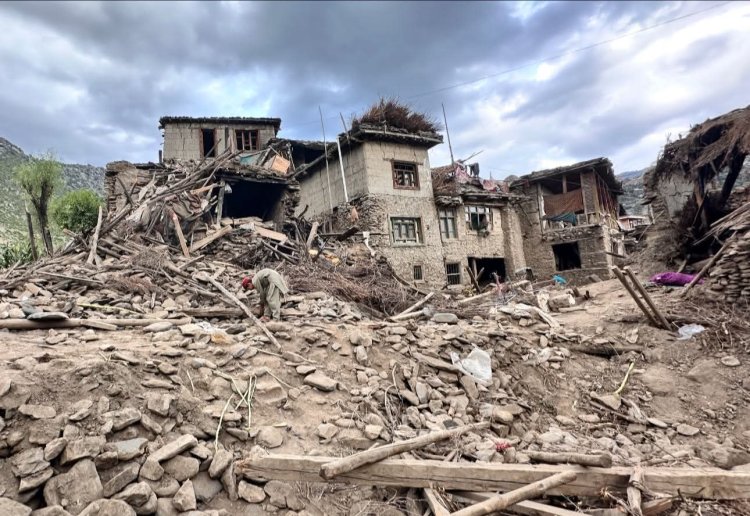Earthquake Survivors in Kunar Suffer from Diarrhea and Skin Diseases

In eastern Afghanistan’s Kunar province, families affected by the recent earthquake say that since the disaster, their children and other relatives have been suffering from skin infections, severe itching, diarrhea, and several other illnesses. They report that the lack of clean water, nutritious food, and proper medical facilities has further deteriorated their health conditions.
Ahmad Sapi, an earthquake survivor from Nurgal district, said that he himself has developed a skin condition. He complained that essential facilities are missing in the camps and that the shortage of clean water and healthy food is the main cause of the growing health problems.
“Thousands of families are living in the camp built for earthquake survivors,” he said. “But there is no food, no clean water, and no medical services. As a result, people are suffering from skin diseases and diarrhea.”
According to Sapi, the absence of safe drinking water has forced people to use water from streams and the Kunar River, which are heavily contaminated. He added that health centers are overcrowded, with long queues of patients, and not everyone can receive treatment.
Another resident of Chawkay district, who lost three family members during previous quakes and now lives in a camp, said that his children are suffering from pneumonia and diarrhea in addition to skin infections.
“So far, no substantial assistance has been provided to earthquake victims,” he said. “All affected people are still living in tents. The nights are extremely cold, and many children are now suffering from pneumonia, cough, and diarrhea.”
He added that medicine and other medical services are in short supply and that not everyone has access to treatment. He urged international organizations to provide urgent assistance with shelter, food, and healthcare.
Najibullah, another camp resident who lost his wife in the earthquake, now lives in a tent with his five children, including two young daughters. He said the harsh conditions in the camp have worsened the spread of disease.
“My wife died during the earthquake, leaving me with five children to care for,” he said. “No aid has been provided to us for a long time. Illnesses are spreading, and we urgently need shelter. How long are we supposed to live in tents?”
Meanwhile, Dr. Abdul Waris Momand, head of a health center in the affected area, said that while limited medical and basic services have been provided, they are far from sufficient. He explained that two health centers have been established in the camps, but these facilities cannot meet the needs of everyone.
Dr. Momand described the situation as alarming, noting that infectious diseases are increasingly spreading among earthquake victims.
“Our health center is operational, but the number of patients has recently risen sharply,” he said. “As the weather gets colder, the situation is deteriorating further. The lack of clean drinking water remains the biggest issue, which has increased diarrheal cases. The number of patients grows every day.”
The World Health Organization (WHO) has warned that about half a million people in Afghanistan’s eastern provinces urgently need medical assistance following the August 31 earthquake. Thousands of families displaced by the tremors and destruction of their homes are now living in six temporary camps in Kunar, where they face shortages of clean water, sanitation, and healthcare. Overcrowding, water contamination, and limited medical access have heightened the risk of diarrhea and respiratory infections, while the threats of malaria and measles remain.
With winter approaching, concerns are rising for families living in remote areas without proper shelter. The WHO has called for more than $6.9 million in funding over the next six months to continue life-saving health services and support displaced communities.
